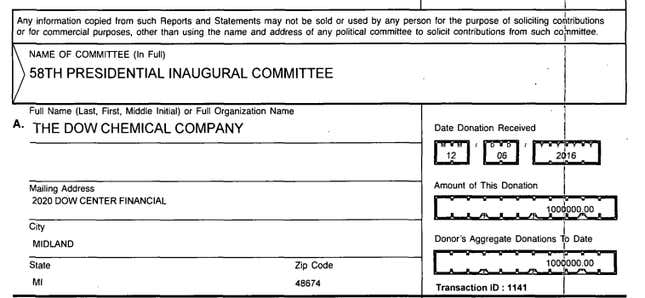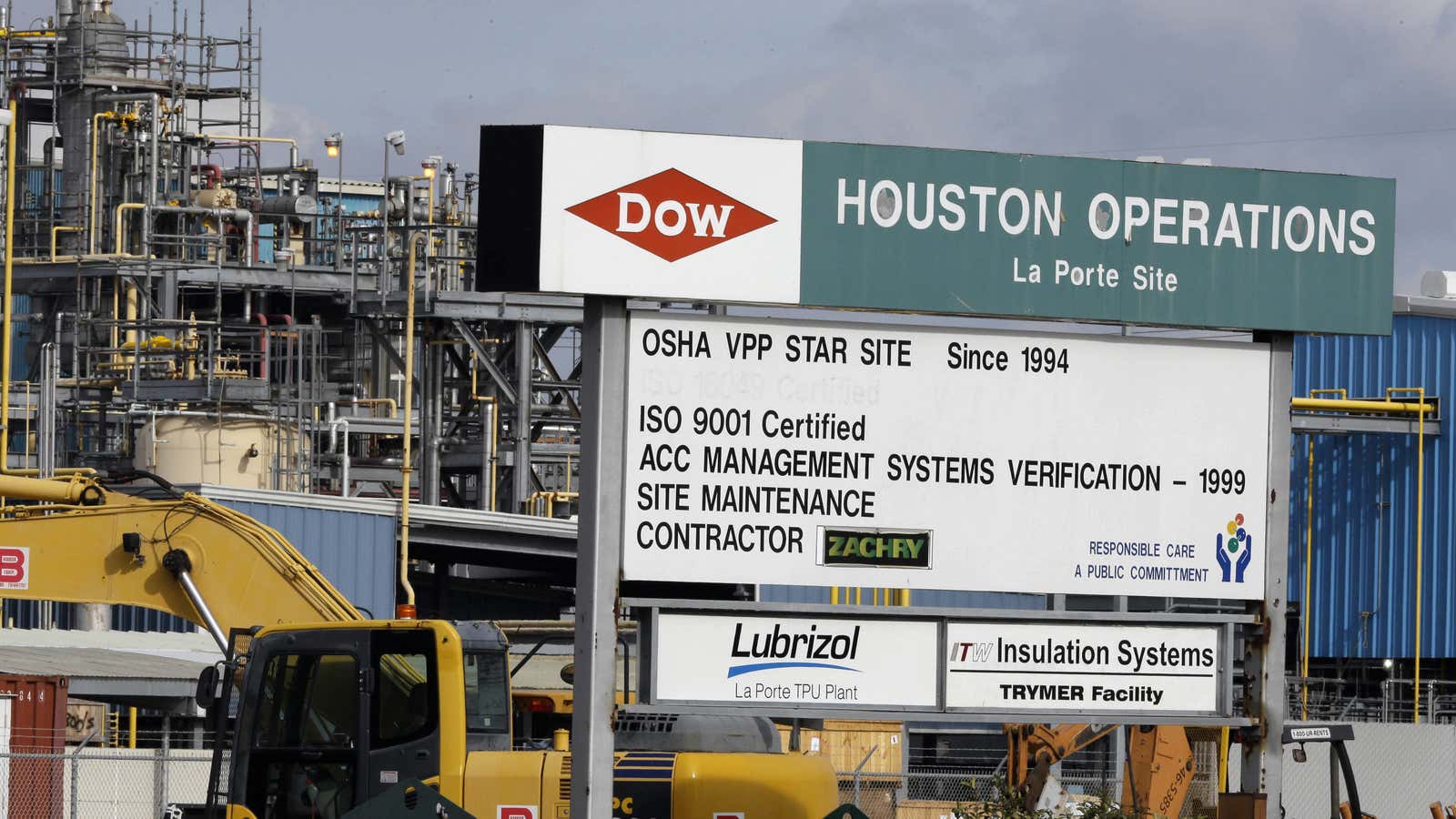Dow Chemical bluntly asked the Trump administration to “set aside” research showing three of the organophosphate pesticides it manufactures pose threats to endangered species in letters obtained and published by the Associated Press on Thursday (April 20).
The company, along with chemical manufacturers Makhteshim Agan of North America, Inc. (also known as Adama) and FMC Corporation, requested the government to “direct that any effort to prepare biological opinions based on them be set aside,” according to one letter, sent to US Department of Commerce secretary Wilbur Ross.
The request comes after Dow donated $1 million to fund the inauguration ceremony of president Donald Trump. The company did not donate to either of president Obama’s inaugurations.

The research in question was conducted by federal scientists, who concluded that three common organophosphate pesticides—chlorpyrifos, diazinon, and malathion—posed a threat to almost 1,800 critically threatened or endangered species, or nearly every species the scientists studied, according to the AP. The scientists’ “biological assessment,” 10,000 pages compiling nearly four years of research, is under consideration by the three federal agencies responsible for enforcing the Endangered Species Act; the Environmental Protection Agency, the Department of Commerce, and the Department of the Interior are expected to put out new regulations for the chemicals soon.
One of the pesticides, chlorpyrifos, has also previously been found to cause brain damage in children. Despite the conclusions of his agency’s own scientists, Scott Pruitt, the administrator for the US Environmental Protection Agency which sets limits of toxins that affect human health, chose not to ban chlorpyrifos in a blockbuster decision that made headlines last month.
In its letters, Dow argued that the biological evaluations by the scientists were “fundamentally flawed” because they did not include safety studies submitted by the chemical companies themselves. Another complaint: that scientists included some animals not yet on the Endangered Species List, but which are “proposed” or “candidate” species for the list.
The company also cited “major lack of transparency necessary for…reproduction of results” in the studies the scientists looked at. This is an argument lately used by Republican lawmakers to object to EPA science, which relies in part on peer-reviewed papers not always freely accessible to the public. Often this is because they are published in subscription-only scientific journals or because they use data sets behind paywalls or not published online.
Dow told the AP that its donation to Trump’s inauguration was not intended to sway policy. “Dow maintains and is committed to the highest standard of ethical conduct in all such activity,” a spokesperson told the AP.
For now, the three federal agencies have not issued a decision about the pesticides, nor said whether they would heed Dow’s request.
